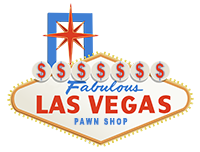
Pawn loans are an excellent option for many reasons. Also known as a collateral loan, a pawn loan is an alternative means of borrowing money when you need quick cash. Pawn loans are a great way to get the cash you need without worrying about credit history or approval. Loan interest rates are often much less than traditional loans, although they vary from state to state and shop to shop. Let’s explore the ins and outs of pawn loans.
How Do Pawn Loans Work?
When you go to a local pawnshop for a loan, a pawnbroker will discuss your options. Most brokers will lend you money in exchange for temporary ownership of your valuable items. The most popular items used as collateral for pawn loans include jewelry, electronics, musical instruments, and other valuable items.
Simply go to your local pawnshop with the items you intend to leave as collateral to initiate a pawn loan. The staff will assess the value of your item and make you a cash offer. Then, you’ll decide on the terms of your loan. When you agree to a pawn loan, the broker will take possession of your collateral in exchange for money. You’ll receive a pawn ticket that outlines the details of your agreement. This will include the collateral you’ve left, the fees associated with regaining possession of your valuables, and when you’re expected to pay back the loan.
Once you pay back the loan, your collateral is returned. If you can’t repay the loan in the agreed time, you can typically ask for an extension. If you don’t repay the loan or communicate with your pawnshop for an extension, the shop will take ownership of your collateral and have the right to sell your belongings.
Pros and Cons of a Pawn Loan
There are both pros and cons to pawn loans. The pros include:
- You can get money in the fastest, most convenient way.
- There are no credit checks or credit history requirements.
- There are no limits to the number of times you can take a pawn loan. Once you repay one loan, you can take a new loan out immediately.
- There is no minimum or maximum loan requirements.
- If you cannot repay the loan in time, you can ask for an extension. Late repayment will not affect your credit history.
The biggest drawback of a pawn loan is the interest value. If you can’t repay the loan in time, you will have to pay additional interest if the pawnbroker agrees to an extension. Interest and finance charges can be high. Still, they are typically lower than those of traditional loans.
Another disadvantage of a pawn loan is that you will lose your valuable item if you can’t repay the loan on time. Once the loan is in default, the pawnshop has the authority to sell your item. If you want to repurchase it before someone else does, you’ll typically end up paying more than the amount of your initial loan.
Take Advantage of Great Deals at Las Vegas Pawn
Our Fontana pawn shop has excellent options and rates for pawn loans if you’re looking for fast cash. Contact us or swing by the shop to learn more.

